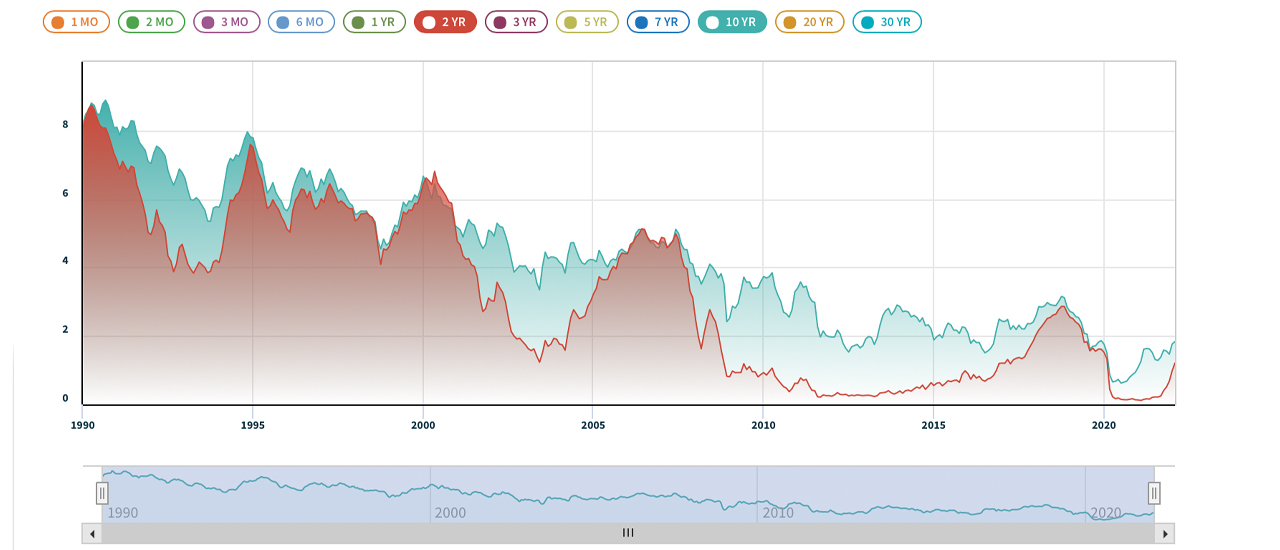
Fears of a recession and a 1970s-style stagflation economy continue to grip Wall Street and investors this week, as multiple reports show that recession signals have intensified. With oil and commodity prices surging, Reuters reports that investors are “recalibrating their portfolios for an expected period of high inflation and weaker growth.”
While Wall Street Fears Stagflation, Analyst Believes ‘Global Markets Will Collapse’ This Year
This week there’s been a slew of headlines indicating that fears of a 1970s-style stagflation economy have risen and economic fallout is coming soon. Three days ago, Reuters’ author David Randall noted that U.S. investors are scared of a hawkish central bank, oil prices surging, and the current conflict in Ukraine. Randall spoke with Nuveen’s chief investment officer of global fixed income, Anders Persson, and the analyst noted stagflation isn’t here just yet, but it is getting near that point.
“Our base case is still not 1970s stagflation, but we’re getting closer to that ZIP code,” Persson said.
On Saturday, Bitcoin.com News reported on the skyrocketing energy stocks, precious metals, and global commodities breaking market records. The same day, the popular Twitter account Pentoshi tweeted about a pending “greater depression.” At the time of writing, the tweet was retweeted 69 times and has close to a thousand likes. Pentoshi told his 523,500 Twitter followers:
The most exciting thing this year. Will be global markets collapsing. Any market that trades above 0 will be too high. They will call this: ‘The greater depression’ which will be 10x worse than the Great Depression.
US Treasury Yield Curve Highlights ‘Recession Concerns Showing up More Prominently’
The following day, Reuters’ author Davide Barbuscia detailed that “recession concerns are showing up more prominently in the U.S. Treasury yield curve.” Data from Barbuscia’s report stresses that the “closely watched gap between yields on two- and 10-year notes stood at its narrowest since March 2020.”

Numerous financial publications are highlighting how rising oil and commodity prices are typically associated with a pending recession. Furthermore, recent filings indicate that Warren Buffett’s Berkshire Hathaway obtained a $5 billion stake in Occidental Petroleum. Berkshire Hathaway has also doubled the firm’s exposure to Chevron as well.
What do you think about the reported signals that show a recession or 1970s stagflation is looming over the economy? Let us know what you think about this subject in the comments section below.
Image Credits: Shutterstock, Pixabay, Wiki Commons
Disclaimer: This article is for informational purposes only. It is not a direct offer or solicitation of an offer to buy or sell, or a recommendation or endorsement of any products, services, or companies. Bitcoin.com does not provide investment, tax, legal, or accounting advice. Neither the company nor the author is responsible, directly or indirectly, for any damage or loss caused or alleged to be caused by or in connection with the use of or reliance on any content, goods or services mentioned in this article.
Read disclaimer


